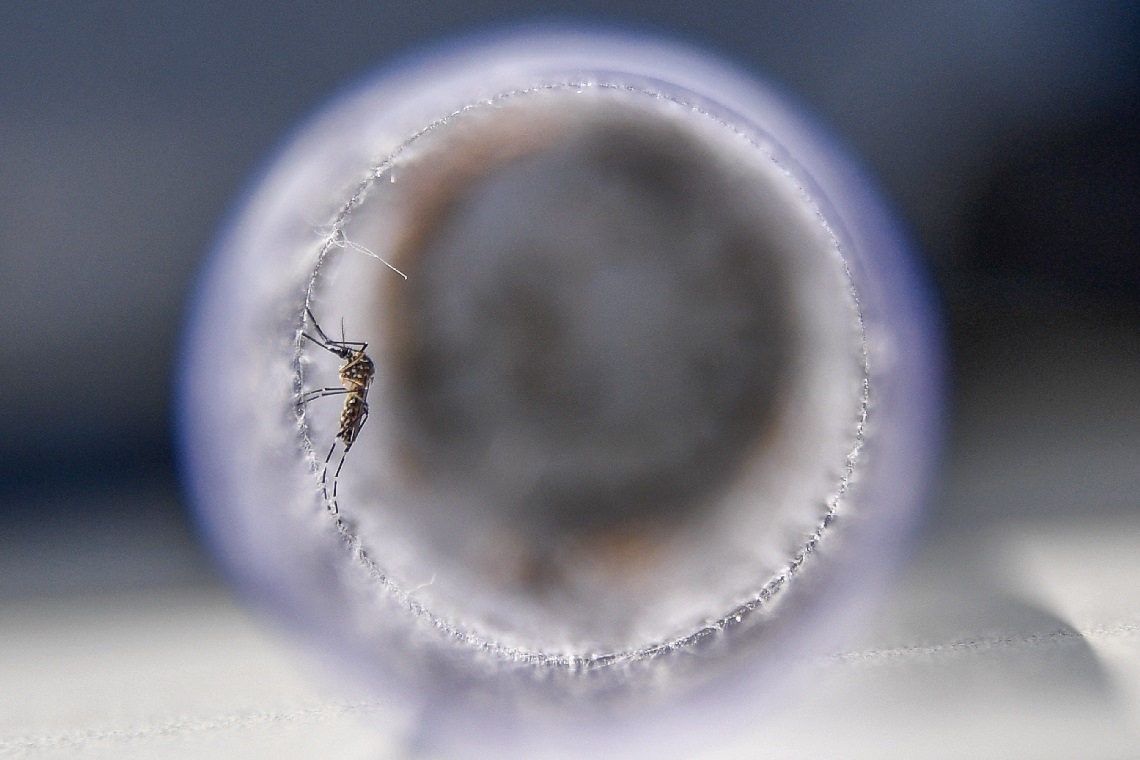Brazil pioneered the release of transgenic Aedes aegypti mosquitoes, with testing carried out in towns in the states of Bahia and São Paulo since last decade. One controversial article was published in the journal Scientific Reports in 2019 about a study in Jacobina, Bahia. The article concluded that the modified insects transferred the transgenic genes to the wild population, generating hybrid mosquitoes. After criticism, the journal attached a note of editorial concern to the paper in 2020, supported by six of its 10 authors (see Pesquisa FAPESP issue nº 285).
Two years after the controversy, the Brazilian government authorized Oxitec to sell the genetically modified mosquito throughout Brazil, based on a favorable opinion from the Brazilian National Biosafety Technical Commission (CTNBio). “We are introducing Aedes do Bem to a large customer base of both companies and individuals and it is being adopted by many of them,” says Matheus Valério, a biologist at pest control company Detecta. “We have to demonstrate this new concept, because most people are used to conventionally applied products.” Headquartered in Campinas, São Paulo, Detecta started selling the product as an Oxitec distributor in October 2022.
– Company develops transgenic moth
The company recommends releasing the mosquitoes for at least eight consecutive months, preferably including October to March. The basic kit consists of two boxes, enough for 5,000 square meters (m2). Each box contains about 2,300 eggs, but only 1,200 male mosquitoes are born from each—the females do not survive. The boxes have to be refilled with new eggs every 28 days.
The kit also includes four sachets used to control the water quality, which is essential to the mosquito’s development cycle. Each box sold by Detecta costs R$460 and a refill costs R$196. Valério highlights, however, that the total cost varies widely. “It depends on the size of the area, whether the product needs to be moved around, and who is taking care of the boxes. Each project is unique.”
In the USA, they are still being released on an experimental basis and only in Florida. In 2020, the USA’s Environmental Protection Agency (EPA) authorized Oxitec to carry out pilot tests of the technology with its second generation mosquito (of the OX5034 lineage) in parts of Florida and California.
The American agency, however, took an extra precaution, prohibiting the company from releasing mosquitoes less than 500 m from possible sources of the antibiotic tetracycline, such as sewage treatment plants, farms producing apples, pears, and citrus fruits, and cattle or pig farms. Tetracycline is commonly used in both animal and human healthcare, as well as in agriculture. Because it can sometimes pass through the body without being metabolized in the digestive tract, it can contaminate the surrounding environment, even in low concentrations.
Oxitec’s transgenic mosquito is raised in a tetracycline-rich environment. Like with Spodoptera, the lethal gene introduced is tTAV, made from synthetic DNA based on a fusion of sequences from the bacteria Escherichia coli and the herpes simplex virus. “In the lab, high concentrations of tetracycline can inhibit expression of the lethal gene. In the field, the male transgenic insect mates with the female, who then lays the eggs. The eggs hatch and become larvae, which are aquatic. The offspring do not encounter high concentrations of the antibiotic in this medium, so the lethal gene is expressed and the larvae die. This is a general summary of the process,” says ESALQ agronomist Alberto Soares Corrêa.
In a 2022 statement, the EPA argued that there is a “remote chance that environmental sources of tetracycline could have enough tetracycline present to act as a counter agent to the OX5034 female mosquito-lethal trait.” The aim is to reduce any chance of transgenic females surviving and reproducing. Only female Aedes bite humans and transmit disease.
In Brazil, there are no restrictions on where transgenic moths or mosquitoes can be released. Fernando Hercos Valicente, an agronomist, entomologist, and researcher at EMBRAPA Maize and Sorghum who joined CTNBio while the first version of Oxitec’s Aedes aegypti was under approval, says the subject was discussed at the time. “Someone mentioned dog food, which can contain tetracycline. But there was a big difference between the amount that can be in dog food and how much is needed for the insect to survive. A much larger dose would be needed. It’s not a problem,” says Valicente. For him, “the positive results of the tests carried out in Brazil demonstrate the benefit of the technology.”
José Maria Gusman Ferraz, a biologist who was also working at CTNBio and voted against approving the transgenic mosquito, says the authorities have been extremely careless and much more research is needed into the impacts on the ecosystem as a whole. “The precautionary principle is not being followed. The release will only be reevaluated if a highly serious problem occurs. But by then it might be too late. When we authorize a product, we don’t just authorize the transgenic plant or insect. We authorize a technology that could cause environmental changes.”
Scientific article
EVANS, B. et al. Transgenic Aedes aegypti mosquitoes transfer genes into a natural population. Scientific Reports. Sept. 10, 2019.


